The prince and the Party: Five elephants in the room
- Published
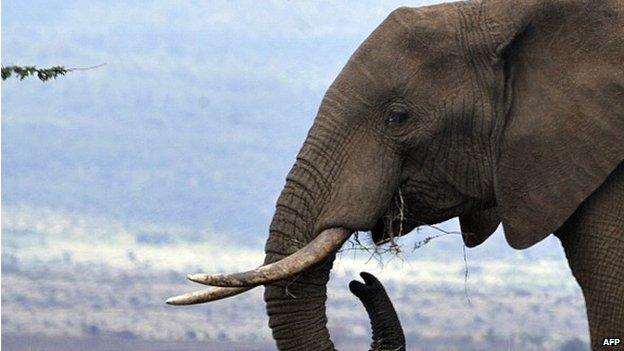
There are a few topics that Prince William is not likely to mention during his visit to China
On Sunday evening, Prince William arrives in Beijing at the start of a three day visit to China.
At state level, the objective is to promote brand Britain, and at a personal level, it's an opportunity to talk about his abiding passion: elephant protection.
But three days is a long time in royal diplomacy and although William is already more deft at this kind of thing than his father or grandfather, he will have to move nimbly to dodge the elephants in the room.
Elephant number 1: The father
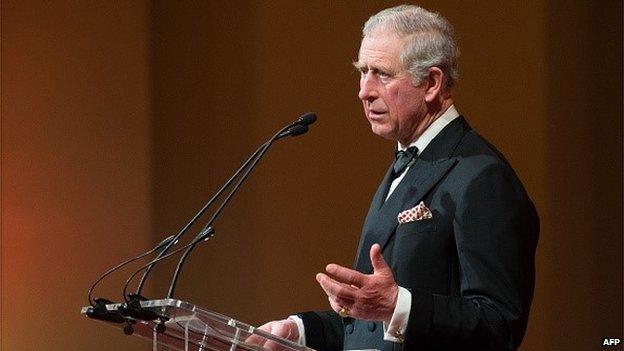
Prince Charles skipped the official banquet when President Jiang was in London
Prince Charles has never visited China, but he has a charity working there to promote "a return to human values in architecture".
After visiting in 1986, Prince Philip, William's grandfather, notoriously described the Chinese capital as "ghastly".
Prince Charles measures good architecture by reference to human scale and respect for the past and on these criteria, Beijing has only deteriorated.
The ancient warren of alleys and courtyards, the undulating tile roofs, hawkers, mule carts and weeping willows, have all fallen victim to the grand ambitions of politicians and developers.
China's capital is now predominantly a concrete maze of ring roads and skyscrapers.
But architectural preference is only the beginning of the jarring divide between the next in line to the British throne and the Chinese leadership.
In a leaked private diary, written at the time of the Hong Kong handover, Prince Charles referred to Chinese officials as "appalling old waxworks".
When President Jiang visited London two years later, Prince Charles avoided attending the official banquet.
He has defied one of Beijing's foreign policy red lines by hosting the Dalai Lama at Clarence House, and on their most recent encounter, he even held hands with the Tibetan spiritual leader, a man reviled in Beijing as a dangerous separatist.
All of this reflects a princely worldview which is very much at odds with that of the Chinese government. So while William may be showered with goodwill messages for his pregnant wife Kate and his son George, mentions of his father may well be taboo.
Elephant number 2: The history
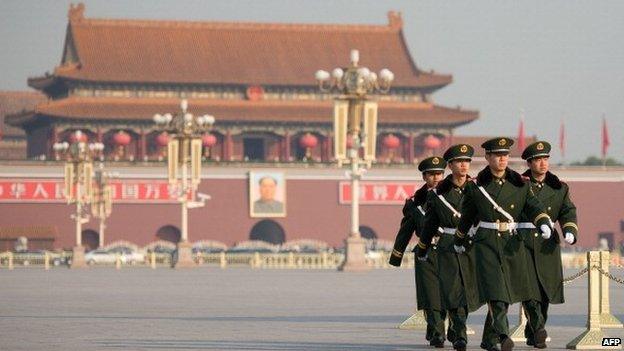
William will not be visiting the other great imperial palace in Beijing - the fabled Summer Palace
In Beijing, William will visit the Forbidden City, once home to a glittering imperial household which made Buckingham Palace look provincial by comparison.
Almost every child in China knows that during the reign of Queen Victoria, William's great-great-great-great-grandmother, a British army looted and destroyed the other great imperial palace in Beijing.
It doesn't matter that young Chinese added to the destruction during Chairman Mao's fanatical Cultural Revolution in the 1960s.
The history that's taught is how the British burned the fabled Summer Palace to the ground in 1860.
It's part of a pressing political message that China was brought low by foreign aggressors who preyed on its weakness and reunited only by the ruling Communist Party.
Occasionally Chinese citizens suggest that if the British want to understand how they feel about this chapter in history, they should imagine a Chinese army marching on London, smashing the contents of the British Museum and burning Buckingham Palace to the ground.
It doesn't help that there are still looted works of art in the Royal Collection and even a painting of a Pekinese dog called Looty who was brought back to London after the campaign and given to Queen Victoria as a pet.
Not surprisingly Prince William will not visit the ruins of the Summer Palace and as he admires the unburned Forbidden City in the heart of Beijing, both sides will studiously avoid any discussion of looted art works, Pekinese dogs or unhappy chapters in their shared history.
Elephant number 3: Politics
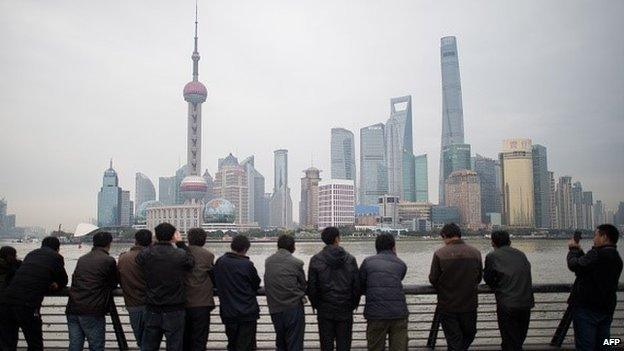
Can the Shanghai exhibition boost creative links between China and the UK?
After official engagements in Beijing, you might imagine that Prince William will be on safer ground when he gets to Shanghai to open a business exhibition aimed at "building British prosperity through innovation and creative business partnerships".
More than 500 businesses will attend the Great Festival of Creativity and organisers hope it will deliver up to £150m ($230m) of business and forge lasting partnerships in areas including TV, film, advertising and digital media.
But this British push comes at a time when China is firmly closing off its domestic internet from any messages and services it sees as a threat.
Communist Party propaganda organs are railing against "erroneous Western ideas" and "the efforts of foreign hostile forces to foment colour revolution".
The American Chamber of Commerce in China recently complained of a "growing trend… requiring companies to use only technology products and services that are developed and controlled by Chinese companies".
The Chinese government may use YouTube, Facebook and Twitter to promote its message abroad but it bans these companies from domestic cyberspace.
The European Chamber of Commerce said 86% of respondents in a recent members survey reported negative effects of this cyber chill on their business.
So while Prince William will meet the princes of the Chinese internet, like Alibaba's Jack Ma, and while the GREAT, external exhibition will allow British digital companies to showcase their expertise, the room for real creative partnerships is heavily circumscribed.
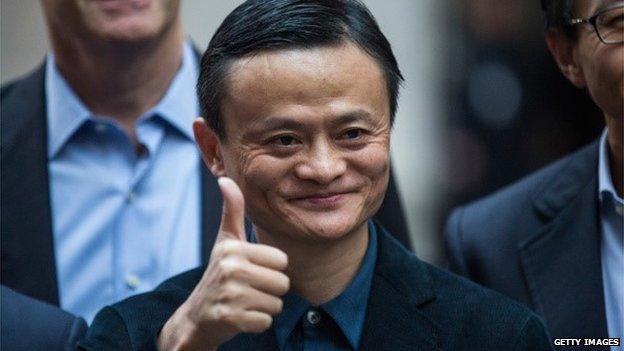
Prince William will meet the prince of the Chinese internet Alibaba's Jack Ma
The same problems affect other creative industries.
In Shanghai, the prince will attend the China premiere of the film Paddington and some of the special effects companies involved will be at the exhibition.
China is already Hollywood's second largest market and the appetite for international cinema is only growing. But China only allows 34 foreign films to be screened in any year and censorship can be intense and unpredictable.
Of course, the wider context for all of this is economic scale. China is on track to overtake the United States as the world's largest economy.
British thinking may be that a crumb from the giant's table makes a good meal for someone smaller.
At a celebration for Chinese New Year in London last week, David Cameron said: "Britain has a very clear message for Chinese businesses and investors, which is we want to be the most open and welcoming country that you invest in."
But no-one should be under any illusion that this applies in reverse.
China may be the market that no-one can ignore, but it is not a welcoming country for foreign creative players to trade or invest in.
What's more the freedoms that underpin these industries are absent.
China is a country with one-party politics and jealous control of sensitive markets.
British creatives will be welcome where they can provide a service or teach a skill which is not yet available from a Chinese company, but the welcome is conditional and of unpredictable duration.
Which is quite a large elephant in the room to skirt when celebrating creative alliances at the GREAT exhibition in Shanghai.
Elephant number four: Hong Kong
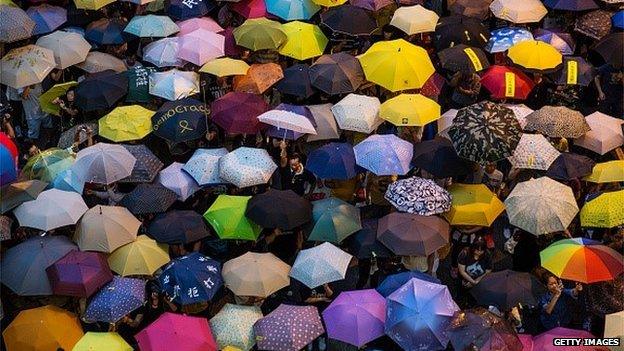
The pro-democracy movement in Hong Kong came to be symbolised by the umbrella
At least Prince William is not trying to visit the next elephant.
It's only three months since the Chinese government told a committee of British MPs who wanted to go on a fact finding trip to the former British colony that they would be barred entry.
The leader of the group, Sir Richard Ottaway, described the travel ban as confrontational and ridiculous but a Chinese foreign ministry spokeswoman accused him of being confrontational, saying: "For those who really want to promote good relations the door remains open, but we are firmly opposed to anyone attempting to interfere in China's domestic affairs."
Since painstakingly mending fences after the 18-month freeze that followed David Cameron's 2012 meeting with the Dalai Lama, London has been determined to let neither Tibet nor Hong Kong derail its relations with Beijing.
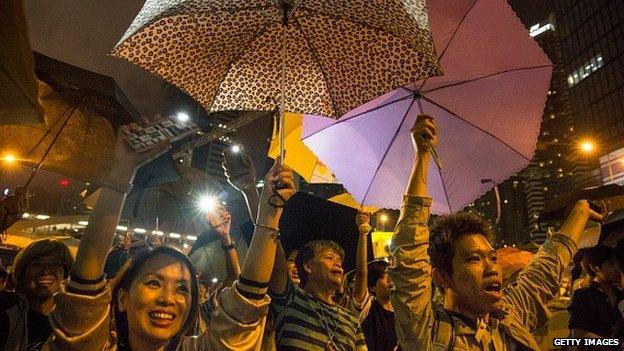
Prince William is not visiting Hong Kong
The British prime minister was reluctant to criticise Beijing's handling of last year's democracy protest in Hong Kong and the foreign secretary said that while Beijing's electoral arrangements for the 2017 election were "more restrictive than anticipated… there remains space within them for a meaningful step forward for democracy".
Prince William will probably avoid mentioning Hong Kong at all. Luckily it's not the rainy season in Beijing or Shanghai so there's no danger of umbrellas which might be misconstrued.
But Hong Kong's political stalemate continues and the former British colony still has the potential to trip up the smooth business relationship that the British government wants with China.
Elephant number 5: A real elephant
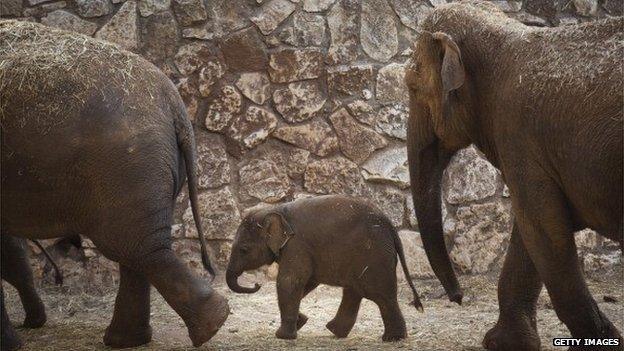
Elephant protection is something Prince William has said he is passionate about
At last one of his own choosing as Prince William visits an elephant sanctuary in Yunnan province to meet animals rescued from poachers' traps.
As a passionate advocate of wildlife conservation, the prince may be distressed to discover by how little of the elephants' rainforest habitat is now left to them in South-west China.
But if he mentions this, or tackles his hosts on the Chinese demand for ivory which is feeding the slaughter of African elephants, at least he will be fighting a battle of his own choosing.
- Published26 February 2015
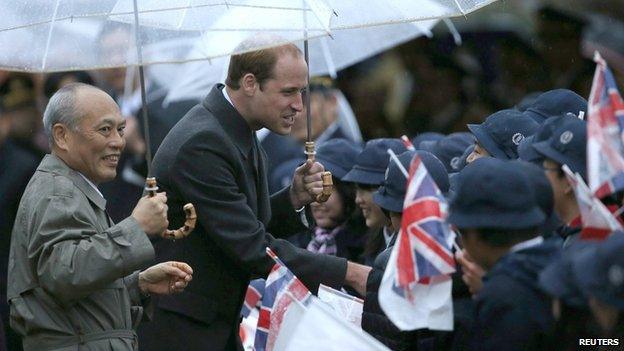
- Published27 February 2015
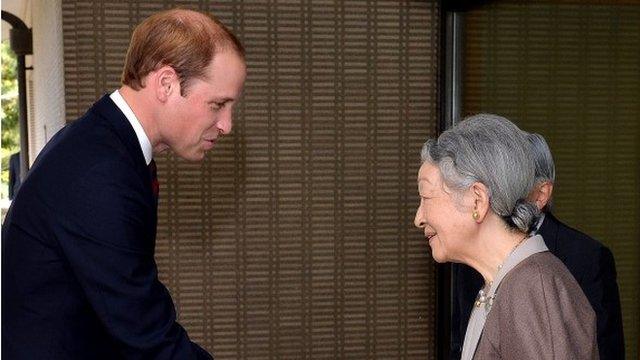
- Published27 February 2015
